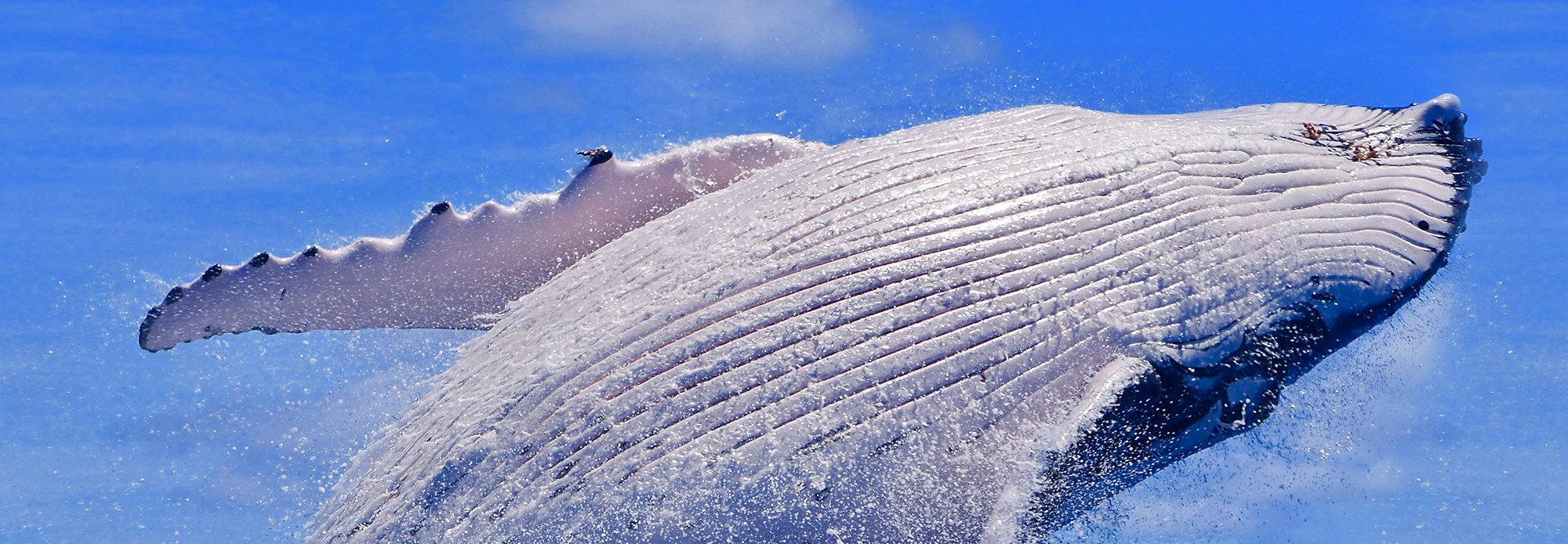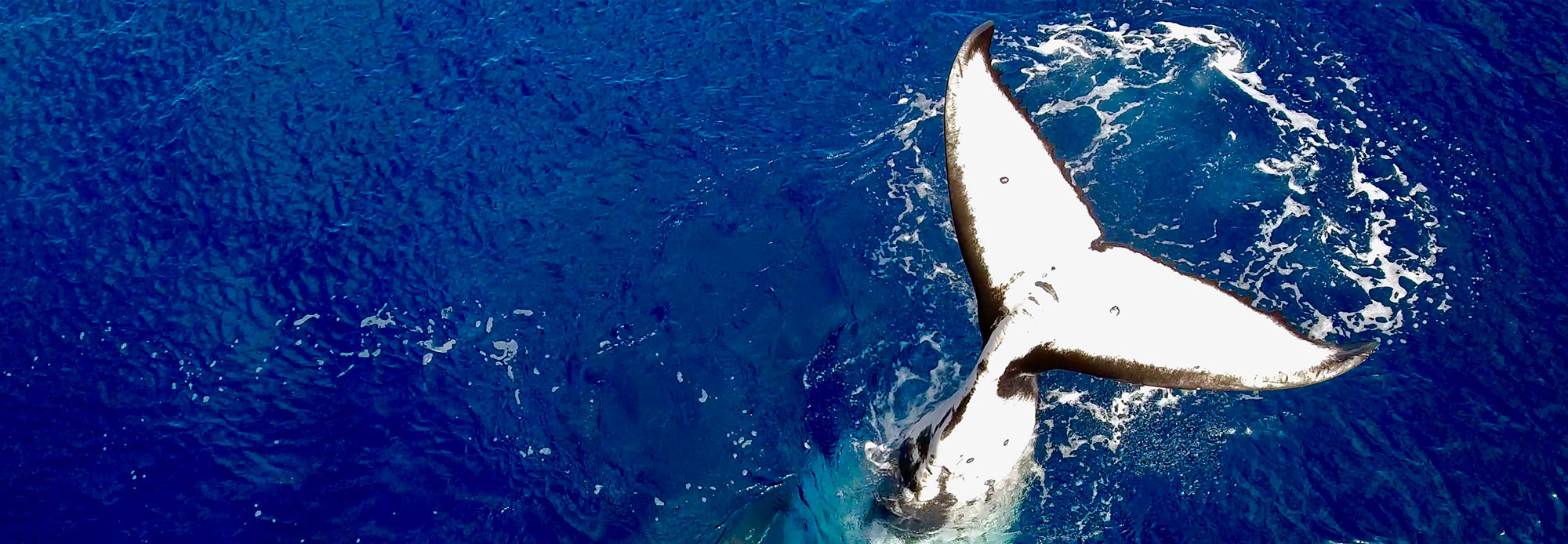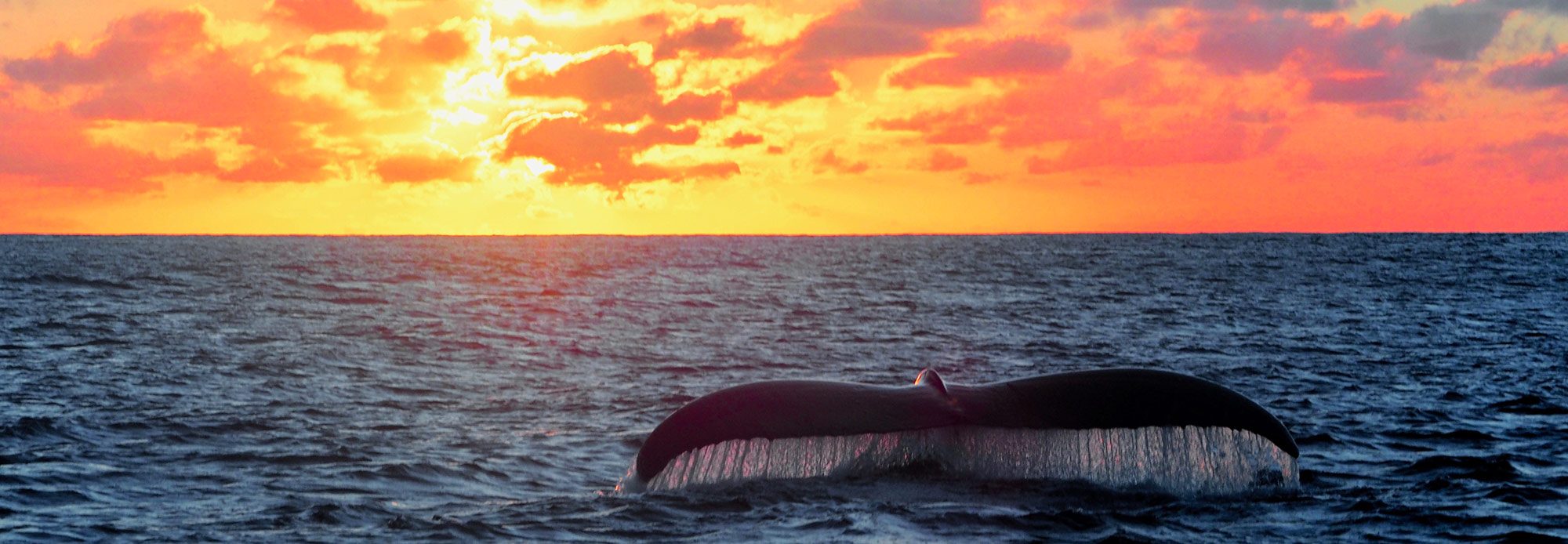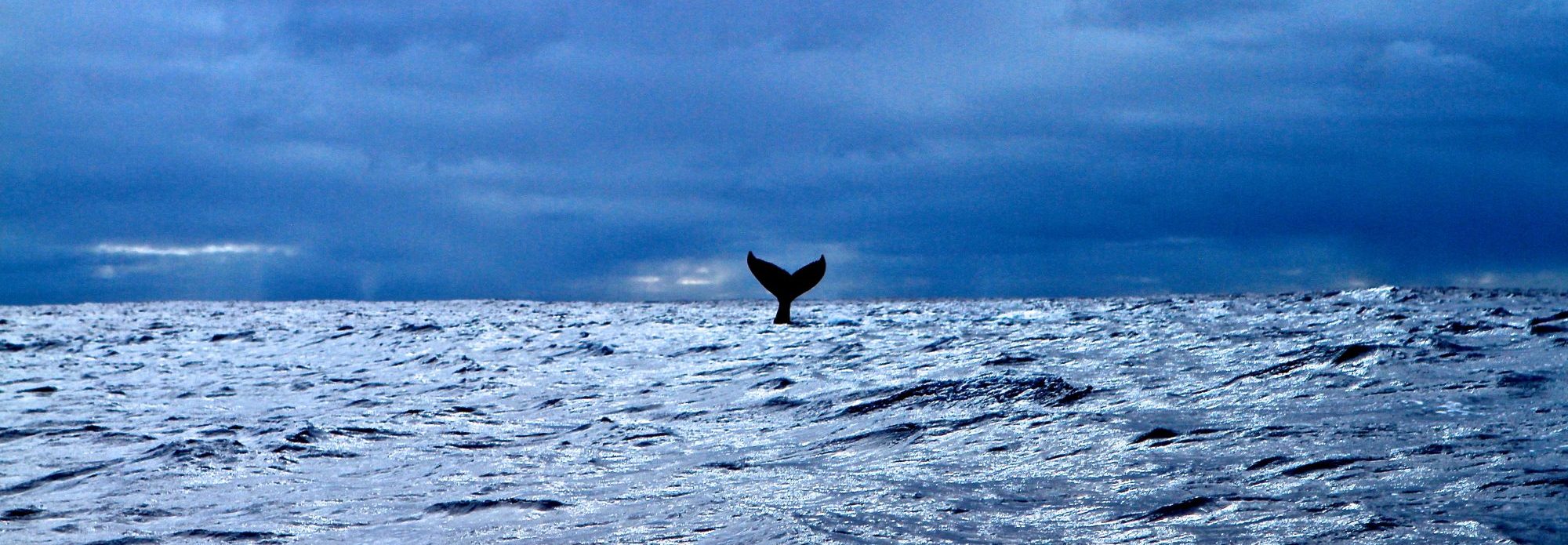The Center for Cetacean Research and Conservation and Cook Islands Whale Research
The Center for Cetacean Research and Conservation (CCRC) was founded nearly three decades ago by President and Director Nan Hauser. Its affiliated venture, Cook Islands Whale Research Project, investigates all species of whales, primarily focusing on the humpback whale population that travels through the equatorial South Pacific. Research topics within the project are diverse, including population identity, photo ID, acoustics, genetics, stable isotopes, blue carbon, satellite tagging, migration and navigation, infrared, and surface and underwater behavior.
Make a Difference
As educators, we raise public awareness of marine conservation issues, especially those concerning cetaceans. It is imperative that we conduct accurate, scientific research and educate the world about whales and dolphins. Our work observes whales as bio-indicators of climate change.
Collaborating Scientists
We are able to achieve so much more when we collaborate with other scientists and work together towards the same goal. CCRC is honored to get to work alongside these and other amazing scientists. Read about some of our collaborating scientists below!
What’s the secret to whales saving the climate? Poo. Seriously.
Conservation of large marine mammals has become a tool that we can use to combat climate change. To help promote a healthy atmosphere, the conservation of marine species, including whales, is an important factor in the equation. Click the link below for a video about how whale poo impacts our atmosphere!
Whale Guardian
Watch the trailer below of a new film we made with Nature Conservation Films Worldwide!
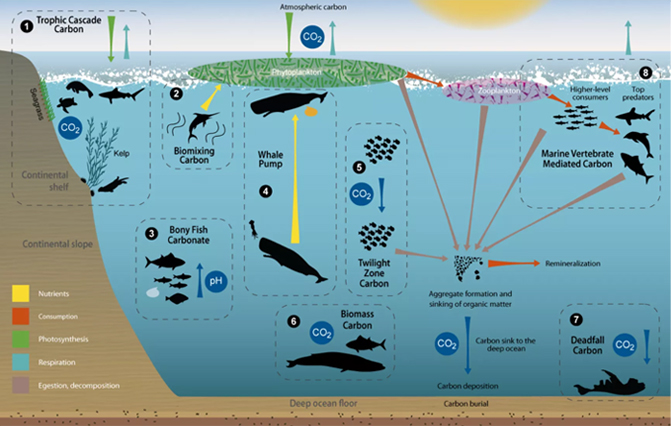
Many people underestimate the impact marine life has on climate.
The impact of whales on climate has been further explored and astounding conclusions have been reached. The interdisciplinary nature of marine science is demonstrated in many oceanic processes. The “whale pump” is an oceanic process in which chemistry, geology, physics and biology intertwine to reveal a significant decrease in atmospheric CO2 thanks to the whales.
Latest Posts
It’s no secret: animals have sex, just like we do. Biologically, sexual reproduction is defined as a process by which two organisms of differing sexes combine genetic information to create new offspring. This shuffling of genetic information fosters genetic diversity, which allows species to better adapt to their changing environmental…
I hate to burst your bubble, but despite my previous blog posts in which I appealingly glorify my encounters with whales, I must admit that in my month of being in Rarotonga, I have only been out on the boat with the whales a handful of times. But this is…
As anthropogenic noise continues to increase in our oceans, animals who employ acoustic communication have become increasingly challenged to make their sounds heard and understood by other members of their species. This artificial noise interferes with behaviors essential to individual and species survival, such as acts of courtship, displays…
Time passes differently on the open ocean, a passive presence that lulls in and out of one’s consciousness with the rhythms of swells. Quiet moments on still water can drag on: time looms over you like a vampiric presence, elongated by the possibility of a whale-induced ripple. Eyes become strained,…



















